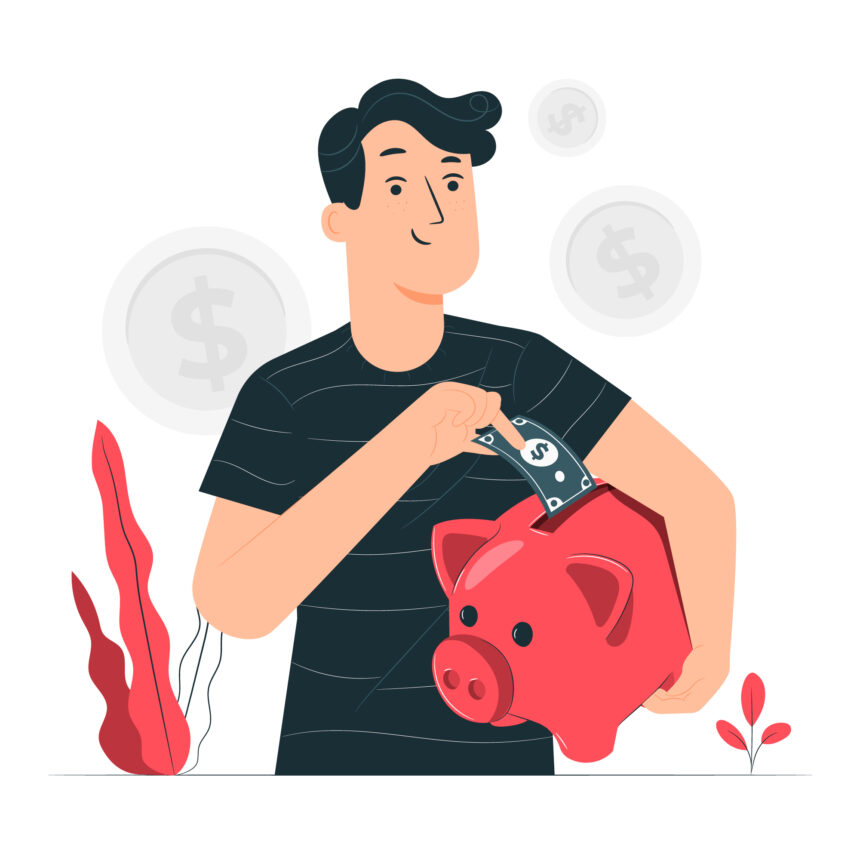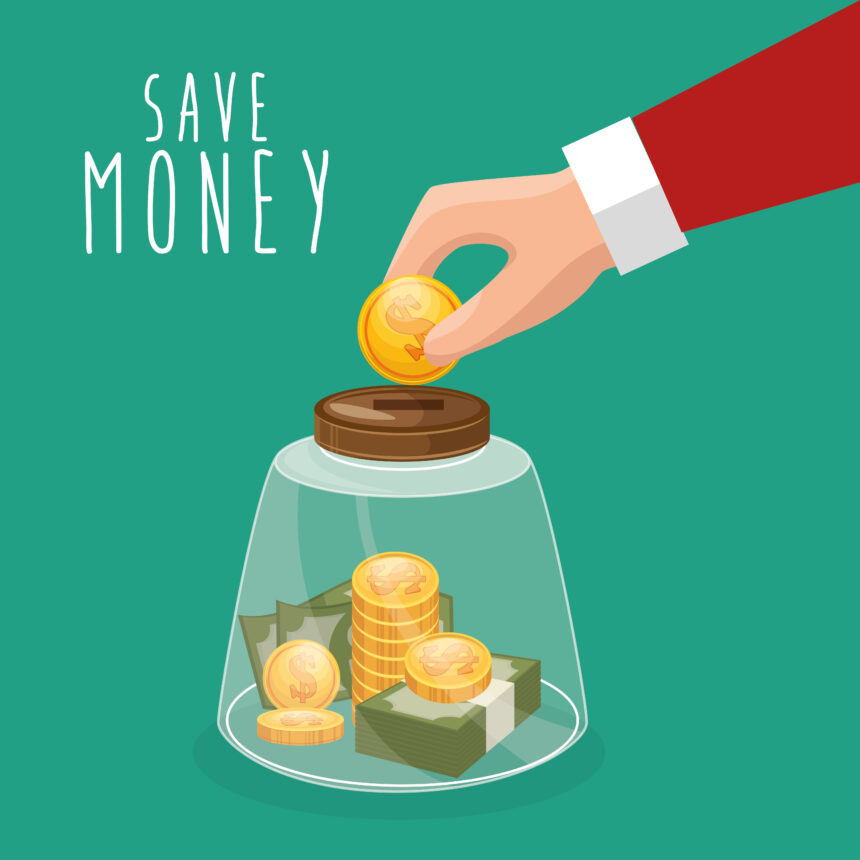Spring arrives around three months after the new year. In April there is the end of the tax year and the end of the first quarter for most businesses. This makes it the ideal time to review your personal finances and get them fighting fit for the coming months. A financial health check like this should happen every three months, ideally.
Decide on time and place to evaluate your finances. Give yourself plenty of time to do and don’t forget to motivate yourself with treats – finances can be boring after all, but they need to get done. After you have optimised your money for the coming months you will feel more in control of your life and better equipped to make intelligent choices.
Self Restraint
A lot of the time the reasons we spend money unnecessarily is because of a lack of self control and financial discipline. This is after a difficult thing to maintain too, especially in the modern online environment where advertising has become so sophisticated.
Bit this makes it even more important to exercise that emotional restraint, the stakes are somewhat higher and too often we find ourselves in vulnerable financial positions online. Always consider whether the product is something you want or need before hitting the buy now button.
Financial self control will help benefit you in other areas of your life, like if you wish to acquire personal loans, you need discipline to handle a personal loan responsibly but they can transform your life and make your money work for you.

A Tempting Environment
When do you spend your money? Do you spend it online after work while browsing the Internet? On nights out with friends at the bar, or at the local shops that are situated conveniently on the corner. Taking out food can also be a habit.
But how tempted would you be to spend your money if the Internet was harder to browse, the takeaway shop was further away, or you went to the park with friends instead of the bar? The chances are you would spend less making the environment an important spending factor.
When you have the urge to spend try using your imagination to picture a different scenario. What if this particular product or service was harder to access, would I still make the effort to buy it. How much effort would you make? This is for you to answer.
Emotions And Money
We may not realise it a lot of the time but our spending habits are closely linked to the way we feel. If we feel stressed or anxious we are far more likely to part with our cash, that’s because we are distracted and also looking for an answer.
Marketing people know this which is why they intentionally distract people when they shop. A distracted person is more likely to spend money. It’s the same with an intoxicated person, they have less emotional restraint. This is something you can be aware of and modify.
To improve your finances this year consider your emotional patterns and how they contribute to your spending habits. One example is craving. When you feel a craving for expensive food or clothing, how do you react, and how could you react in future?
The Checking Account
Everyone has a checking account. It’s the basic bank account you open when you need somewhere to put your wages. This account is a liquid account meaning it’s very easy to withdraw and deposit your money. But they aren’t always the best way to store money.
Although checking accounts are convenient and easy to set up they are not very efficient for storing money. The interest rate on checking accounts is typically quite low meaning that you don’t benefit much from keeping your money there.
This spring consider diversifying your money into various high interest accounts. They might be high interest savings accounts or tax free savings accounts. These allow you to accumulate money more easily than a basic checking account.
Cashless Savings
As the world moves into a new decade it is becoming increasingly cashless. In recent years India has discontinued its 500 and 1000 notes effectively reducing its cash by around 80%. It’s likely more countries will follow suit in the coming years.
There are advantages and disadvantages to this scenario. In some ways it’s more efficient and safer to have a cashless society, but it does mean that personal information is more readily available online and it might negatively impact those without back accounts.
For those with bank accounts there are some perks. Material money in the form of coins and paper is expensive to produce, transport, and store. With cashless financial institutions make savings that they then pass onto customers. Seek out online accounts for offers.
Long Term Investment
Whenever you evaluate your financial situation you need to consider your investments in the short and long term. Investments are what will help you accumulate wealth and provide you and your family with security. But what kind of investments should you make?
Firstly, zero in on your savings. How much are you managing to save each month and what are doing with the money? If it is simply sitting in a checking account it’s not working for you. Spend some time researching high interest savings accounts.
Following this you want to think about your investment opportunities. Some good investments these days are stocks and bonds, e-commerce, and cryptocurrency. If you don’t know much about investing, learn about it before committing your money.

Changing Habits
One of the biggest barriers to saving is the spending and saving habits you have in your life. A habit is a pattern of behaviour that is repeated, consciously or unconsciously. The more you repeat the pattern the more it normalises and becomes part of your life.
One of the hardest things to do is breaking a habit, particularly a bad habit that offers you some emotional or psychological relief. But breaking these bad habits are vital to the changing fortunes of your finances. If you want your financial life to improve this year, identify and break bad habits.
As mentioned this is easier said than done. You may not be able to escape from a habit immediately, just through cognitive decision making. However, deciding to change the habit is the first step. Take pride in this and look out for the next step. Try motivating yourself in new ways.
The Cost Of Spending
When you spend money you effectively swap your time for a product or service. This seems fair enough, it’s how the world operates. But consider if that product or service is really worth your time, and what that money might be used for instead.
There is a higher cost to spending money than the numbers on your bank account. Apart from the cost/time argument, your money accumulates interest, so if the products and services you buy are not worth your time, the money is better off gathering interest.
During your financial health check this spring consider the actual costs of your spending. If you have several subscription services leaving your account every month would it make sense to cancel one or two of them and save the money instead in a high interest account?
Better Budgeting
Budgeting is very important if you want to stay in control of your finances and save for the future. Most people budget in some form but budgets can vary in their effectiveness. You will have to discover what type of budget works best for you.
Some people like to have a monthly budget. With this type of budget you sit down once a month and take stock of your finances. This is usually done with a spreadsheet and bank account statements. It can be quite effective but doesn’t suit everyone.
An alternative to this is a good budget app that can link directly to your bank account. These apps monitor your account in real time and give you updates and notifications about transactions. They can also offer savings options that allow you to save the change on things you buy.
The Need For Less
Your bottom line in terms of personal finance is the basic level of money in and out that you need to live a safe and meaningful life. This usually includes rent or mortgage, food, bills, and recreational activities. Beyond that your spending is probably extra.
This spring take some time to work out your bottom line. Get an idea of how much you spend beyond that bottom line then start making decisions on what you can compromise. Each compromise you make is another chance to save and invest.
Conclusion
Everyone should spend some time evaluating their finances at least once a year. Springtime is a good time to do this because it lands in the first quarter of the months and it’s a time of mental and emotional renewal. There are many factors – outlined in the article – that can impact your ability to save and accumulate wealth. There are also several good approaches you can take to reduce your spending and improve your happiness.
*This is a collaborative post
